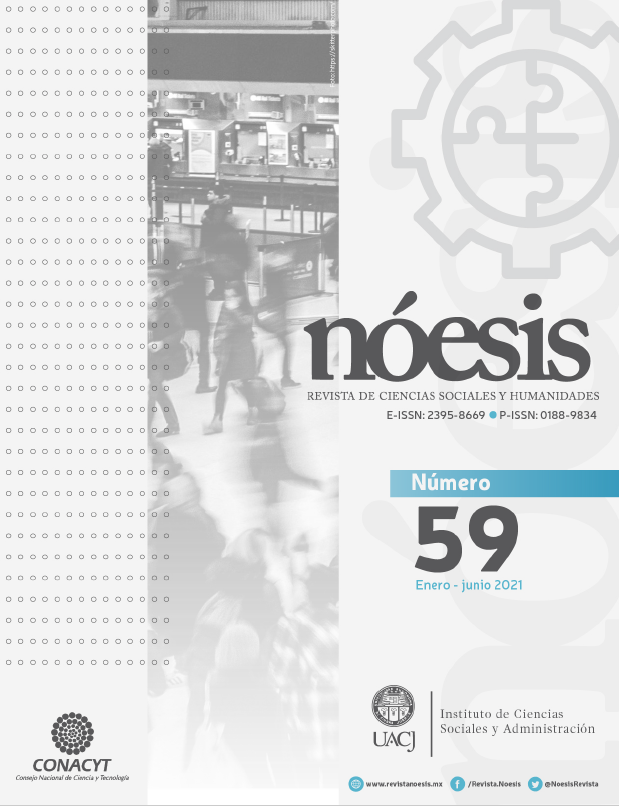Mediated causation: a contemporary model of social coercion
Main Article Content
Abstract
The purpose of this paper is to put forward a plausible model of social causation, which we term mediated causation. Since contemporary social ontology has been reluctant to consider the issue of social coercion, the first part of this article is devoted to introducing some basic conceptual distinctions that define the parameters of the model: which social entities exert which type of coercion and upon whom. The second part describes the general structure of the proposed model, indicating in which sense it counts as a model of causation and in which sense that causation is social. As a result, the model defines two conditions that must obtain in order to have an episode of mediated social causation: (1) an individual I successes in making another individual behave in specific ways, independently of the latter’s will (2) I successes due to the presence of entities such as social practices, positions, and relations.
Downloads
Article Details

This work is licensed under a Creative Commons Attribution-NonCommercial-ShareAlike 4.0 International License.
References
Althusser, L. y Balibar, E. (1970). Reading capital (part 1). NLB.
Archer, M., Bhaskar, R., Collier, A., Lawson, T. y Norrie, A. (1998). Critical realism: essential readings. Routledge.
Bhaskar, R. (1998). The possibility of naturalism: a philosophical critique of the contemporary human sciences. Routledge.
Bhaskar, R. (2008). A realist theory of science. Routledge.
Boghossian, P. (2015) Rules, norms and principles: a conceptual framework. En Araszkiewicz, M., Banás, P., Gizbert-Studnicki, T. y Pleszka, K. (Eds.). Problems of normativity, rules and rule-following (pp. 3-12). Springer.
Boltanski, L. (2011). On critique: a sociology of emancipation. Polity Press.
Bourdieu, P. (1984). Espace social et gènese des “clases”. Actes de la Recherche en Sciences Sociales, 52-53, 3-14.
Bourdieu, P. (2007). El sentido práctico. Siglo XXI.
Brandom, R. (1994). Making it explicit: reasoning, representing and discursive commitment. Harvard University Press.
Brandom, R. (2002). Tales of the mighty dead: historical essays in the metaphysics of intentionality. Harvard University Press.
Bratman, M. (1993). Shared intention. Ethics, 104(1), 97-113.
Chant, S.R., Hindriks, F. y Preyer, G. (Eds.). (2014). From individual to collective intentionality: new essays. Oxford University Press.
De Caro, M. y McArthur, D. (2010). Introduction: science, naturalism and the problem of normativity. En De Caro, M. y McArthur, D. (Eds.) Naturalism and normativity (pp.1-19). Columbia University Press.
De Landa, M. (2006). A new philosophy of society: assemblage theory and social complexity. Continuum.
Durkheim, E. (1919). Les règles de la méthode sociologique. Libraire Félix Arcan.
Elster, J. (1982). Marxism, functionalism and game theory: the case for methodological individualism. Theory and Society, 11(4), 453-482.
Giddens, A. (1984). The constitution of society: an outline of the theory of structuration. Polity Press.
Gilbert, M. (1989). On social facts. Routledge.
Gilbert, M. (2014). Joint Commitment: how we make the social world. Oxford University Press.
Harré, R. y Madden, E. (1975). Causal powers: a theory of natural Necessity. Basil Blackwell.
Harré, R y Varela, C. (1996). Conflicting varieties of realism: causal powers and the problems of social structure. Journal for the Theory of Social Behaviour, 26 (3), 313-325. https://doi.org/10.1111/j.1468-5914.1996.tb00293.x.
Lawson, T. (2014). A conception of social ontology. https://www.csog.econ.cam.ac.uk/documents/AConceptionofSocialOntology.pdf
Lewis, P. (2001). Realism, causality and the problem of social structure. Journal for the Theory of Social Behaviour, 30(3), 249-268. https://doi.org/10.1111/1468-5914.00129.
List, C. y Petit, P. (2011). Group agency: the possibility, design, and status of corporate agents. Oxford University Press.
Marx, K. (1989). Contribución a la crítica de la economía política. Progreso.
Noguera, J. (2003). ¿Quién le teme al individualismo metodológico? Un análisis de sus implicaciones para la teoría social. Papers: revista de sociología, 69, 101-132. http://dx.doi.org/10.5565/rev/papers/v69n0.1285.
Oszlak, O. (2012), La formación del estado argentino. Ariel.
Schatzki, T. (1989). Social causality. Inquiry, 31(2), 151-170. https://doi.org/10.1080/00201748808602145.
Schatzki, T. (2002). The site of the social: a philosophical account of the constitution of social life and change. The Pennsylvania University Press.
Schmitz, M. (2017). What is a We-Mode account of collective intentionality?. En Preyer, G. y Peter, G. (Eds.). Social ontology and collective intentionality: critical essays on the philosophy of Raimo Tuomela with his responses (pp. 37-70). Springer.
Searle, J. (1995). The construction of social reality. The Free Press.
Searle, J. (2010). Making the social world: the structure of human civilization. Oxford University Press.
Tuomela, R. (2013). Social ontology: collective intentionality and group agents. Oxford University Press.

